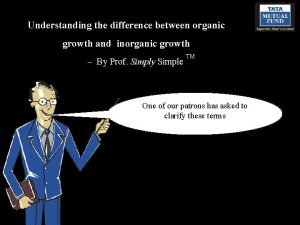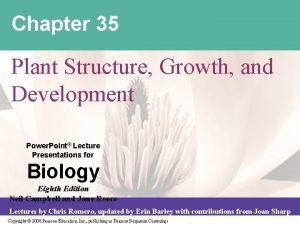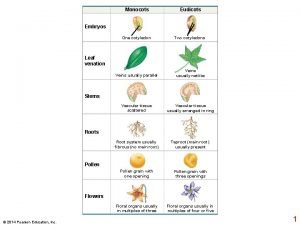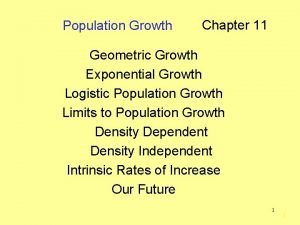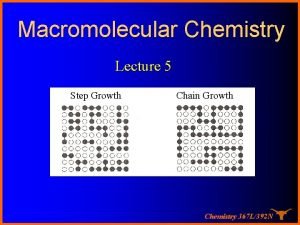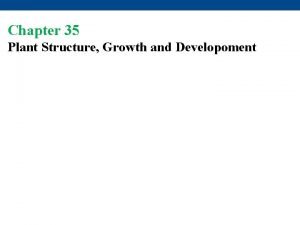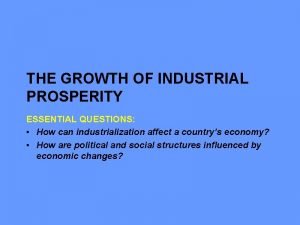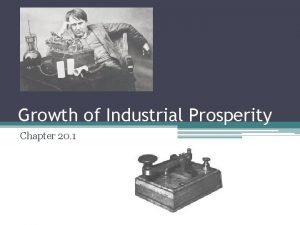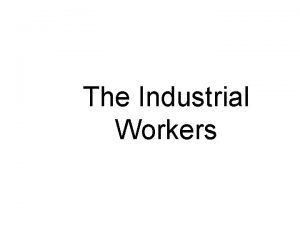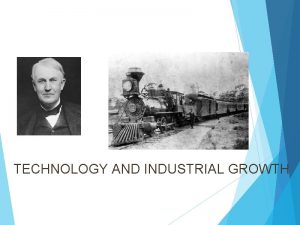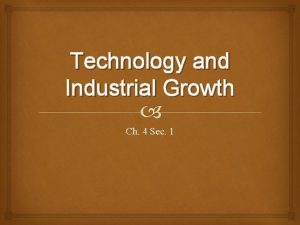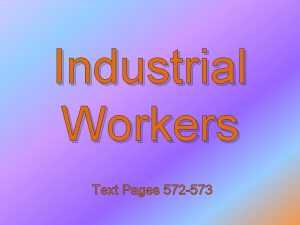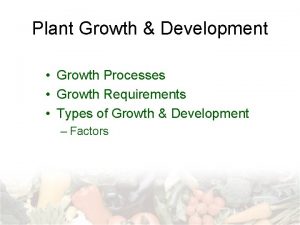Sec 4 Industrial Workers The Industrial Growth of










- Slides: 10


Sec. 4 “Industrial Workers” The Industrial Growth of the late 1800 s created new jobs and raised the standard of living for many working Americans however they paid a price.

¢ Working Conditions: Steel workers: Coal miners: Textile workers: ¢ Industrial laborers worked long hours for little pay. They could be fired at any time for any reason. No laws regulated workers’ salaries Hundreds of thousands of children worked in factories ¢ ¢




Labor Unions Form Dissatisfied workers organized into groups – labor unions – to demand better pay and working conditions. ¢ What were some of the Labor Unions formed? ¢

Knights of Labor – Terrance Powderly ¢ American Federal of Labor (AFL) – formed by a group of national trade unions. Led by Samuel Gompers. ¢ International Ladies’ Garment Workers Union (ILGWU) ¢

Unions Act Economic depressions in the 1870 s and the 1890 s led companies to fire workers and lower wages. Unions responded with large strikes that sometimes sparked violence. ¢ Name some strikes that resulted in violence ¢

¢ ¢ ¢ Haymarket Riot – bloody clash between police & strikers in Chicago’s Haymarket Square in May 1886. Homestead Strike – clash between union strikers and strikebreakers at Andrew Carnegie’s steel plant in PA. Pullman Strike –Chicago’s railway car plant where workers went on strike – eventually an injunction forced them back to work.
 Organic vs inorganic growth
Organic vs inorganic growth Growth analysis definition
Growth analysis definition Primary growth and secondary growth in plants
Primary growth and secondary growth in plants Ground tissue
Ground tissue Geometric growth graph
Geometric growth graph Step growth polymerization vs chain growth
Step growth polymerization vs chain growth Neoclassical growth theory vs. endogenous growth theory
Neoclassical growth theory vs. endogenous growth theory Primary growth and secondary growth in plants
Primary growth and secondary growth in plants The growth of industrial prosperity
The growth of industrial prosperity Lesson 1 the growth of industrial prosperity
Lesson 1 the growth of industrial prosperity Tư thế worms-breton
Tư thế worms-breton
